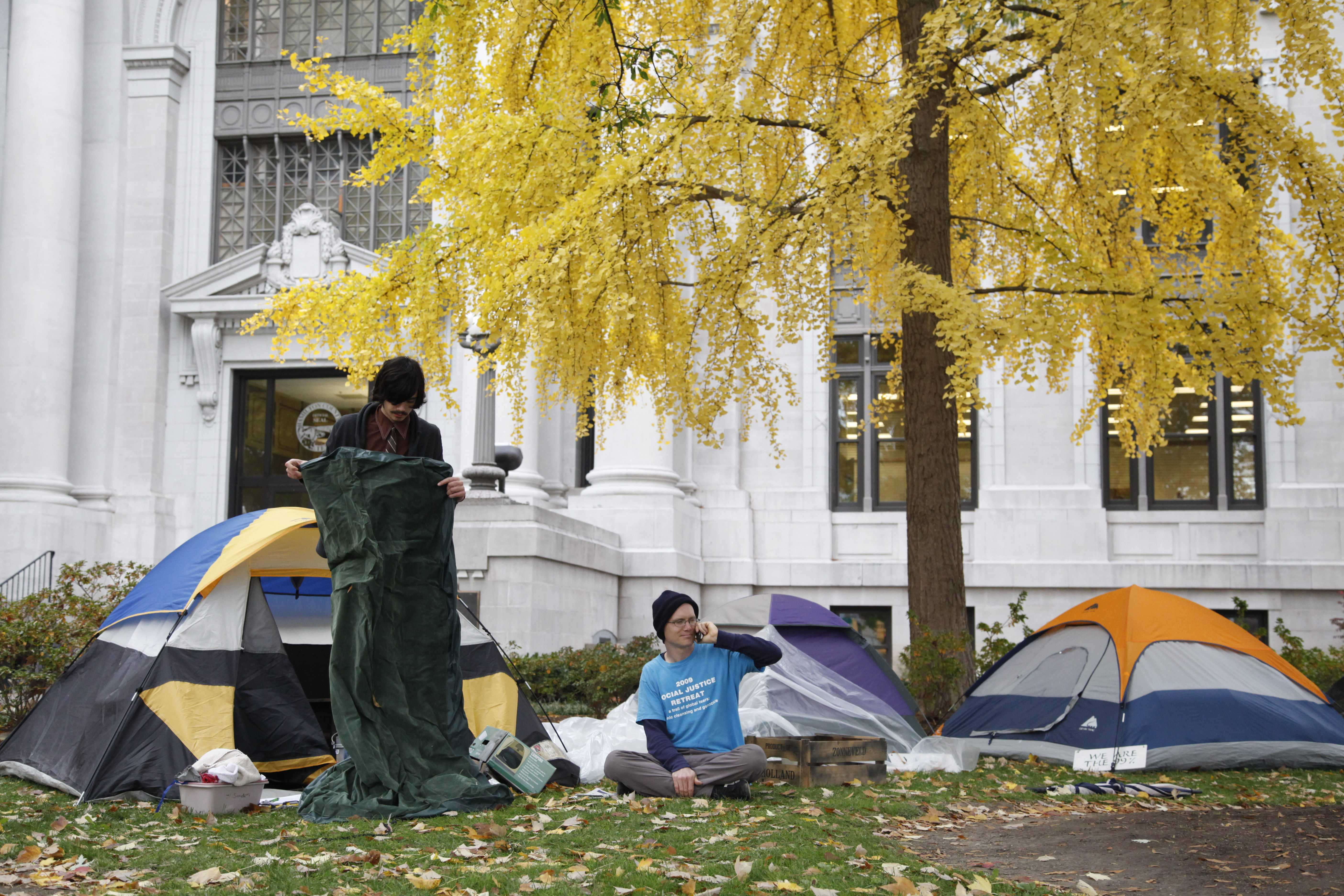Occupy Chattanooga protesters, like those in similar groups in many cities across the country, clearly do not espouse identical political grievances. But their concerns all share a common theme of social injustice under a political system that in many ways favors big corporations and an ultra-wealthy elite over the daily concerns of the nation's beleaguered middle class and poor.
They share something else in common: The constitutional protection of First Amendment rights of free speech and the right to peacefully assemble to petition the government for redress of their grievances. And in Chattanooga, where no one, to our memory, has ever camped on the expansive lawn of the Hamilton County Courthouse downtown under the banner of First Amendment rights, they appear to have the right to keep their protest going on the courthouse lawn 24/7. Their right to do so stems from precisely the same legal authority that prompted a federal judge late last month to bar Gov. Haslam from ejecting Occupy Nashville protesters from the Legislative Plaza at the entry to the state Capitol on an after-the-fact permit requirement.
Ironically, Hamilton County Commissioners here seem perfectly willing to violate the state's Sunshine Law to meet illegally -- without due public notice -- to discuss what to do about their constituents' lawful protest encampment on the County Courthouse lawn. They held that secret meeting Friday with County Attorney Rheubin Taylor.
Their excuse, of course, was that they were getting counsel on a legal issue from their attorney. Maybe so, but in this case, it's unlikely that excuse would hold water: It simply did not require confidentiality to protect a legal option.
The discussion with Taylor, according to Commissioner Fred Skillern -- who did not attend the meeting but was called during the meeting for his opinion -- was obviously about whether the protesters had the right to create an encampment on the courthouse lawn. That easily could have been discussed in an open meeting -- and should have been if one or more commissioners was inclined to object to the encampment.
Our county commissioners, of course, have long demonstrated their lack of concern over core public issues that affect their constituents, or their right to due process.
They won't address the need, for example, for consolidated public services for countywide infrastructure or, alternatively, the gross county tax inequities that leave the 70 percent of their constituents who reside in incorporated municipalities in Hamilton County (fully half are in the city of Chattanooga) paying a disproportionate share of the cost of countywide public infrastructure to support the county's job base.
They meddle endlessly in the elected county school board's business, but have long cheated schools and students of adequate funding and, more recently, of payments-in-of-taxes for education that are received from industries here whose taxes for the county general fund have been abated.
And this year, to protect their outsized $85 million fund balance, they slashed funding for a score of vital civic organizations that serve the needs of disadvantaged citizens countywide.
So their disregard for the state's Open Meetings Act, which mandates public meetings for any discussion on public business between two or more commissioners, is not at all surprising.
Nor is their interest in an attempt to eject the Occupy Chattanooga political protesters from the courthouse lawn.
They would better serve that group of constituents -- an orderly, articulate group with diverse backgrounds and legitimate concerns -- by meeting with them and hearing what they have to say.
It would improve commissioners' views of their own public responsibilities.
It might also remind them of the vital concerns -- for family-wage jobs, health care, affordable education, fair taxes -- that motivate some Americans to camp out in the cold and rain in order to give voice to these crucial public needs.
